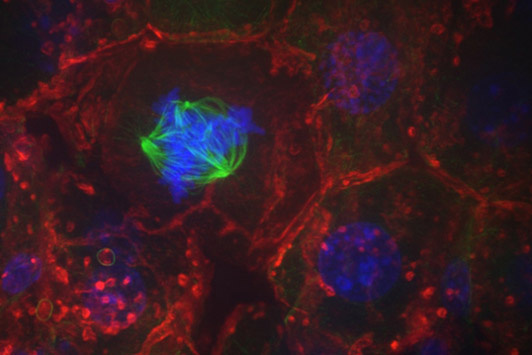
Image: Koch Institute Public Galleries
Let's dish about chromosomes, shall we? Researchers in the Amon Lab have uncovered evidence that cells dividing in culture or in the absence of tissue architecture have significantly higher levels of chromosome mis-segregation (a condition known as aneuploidy) than those that divide within their native environments. Their findings, published in Cell and profiled by HHMI, suggest that the hallmark aneuploidy found in more than 90% of solid human tumors may be influenced by disrupted tissue architecture, independent of gene expression and mutations, and has important implications for the widespread practice of studying cells in a dish. See this work in the KI Public Galleries.
Lead author and 2014 KI Images Award winner Kristin Knouse just won a 2018 NIH Director's Early Independence Award. Congratulations!